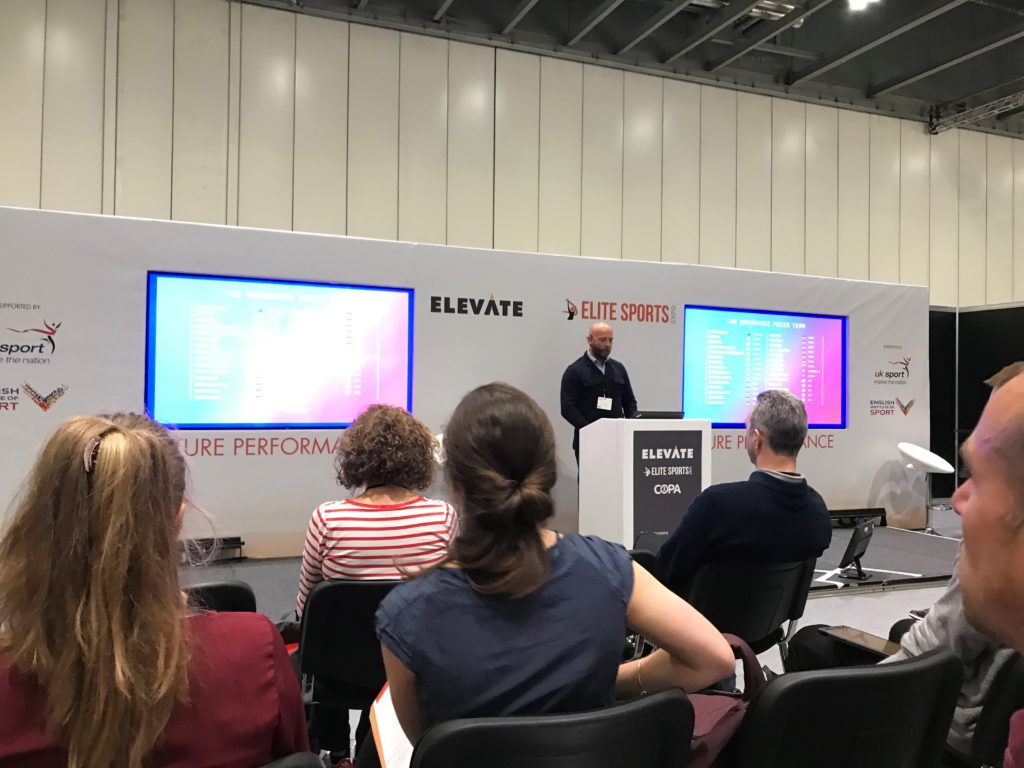The UK’s largest physical activity trade show, Elevate saw thousands of industry leaders engage in discussions on how to shake up the sport and physical activity sector and get more people active.
This year’s event took place at the Excel London on 8-9 May and saw over 300 speakers feature on the agenda as well as nearly 300 companies and organisations exhibiting.
Some of this year’s exhibitors were our very own Sport Tech Hub start-ups who were joined by ukactive’s Active Lab to make up the Tech Lab innovation space at this year’s event.
Delegates got the opportunity to meet each one of the start-ups and discuss their latest digital products and services that are creating opportunities and simplifying the ways people can get active.
London Sport sent Marketing and Communication Intern Becca Mihill down to the Excel and she reports below on the key themes that stood out to her from Elevate 2019.
A Whole-System Approach
One of the learnings from Elevate came from a session with Active Essex as they explored how we can tackle the root cause of inactivity. The session highlighted the importance of utilising a whole systems approach and inviting everyone to the conversation.
Dr William Bird MBE, GP and CEO at Intelligent Health went on to explore the importance of making sure physical activity is a means to an end.
Simply highlighting the health risks that can result from a lack of physical activity isn’t enough of a motivation, he argued. We must integrate it into their lives and use activity to give them a purpose, not to make them feel guilty.

Early Years Sucess
Another session looked into creating active foundations and the important role physical activity can play in a child’s early years.
Ali Oliver, Chief Executive, Youth Sport Trust highlighted that only nine per cent of children are reaching the Chief Medical Officer’s guidelines on physical activity.
She went on to discuss the important role of physical, emotional and intellectual risk taking that can be formed through physical activity and how society’s overbearing health and safety precautions are restricting this.
The session emphasised that children’s activity should only be made as safe as necessary, not as safe as possible and the effective impact of unstructured play.
Consistency of Messaging
The importance of consistent physical activity messaging when seeking disengaged and inactive audiences was another topic discussed at the conference.
One of the examples came from Kate Dale, Strategic Lead – Campaigns for Sport England on the successful This Girl Can campaign.
They explored the importance of market research and getting out and talking to people, emphasising that the industry can’t just predict how they feel.
Within the TGC campaign their research found women found words as simple as ‘sport’ a turn off, often from experiences with sport from childhood.
The talk went on to explore the importance of utilising social media intelligently and how people want to feel part of a community, instead of being told what to do and when to do it.

The Importance of Mental Health
Mental Health awareness is something that is continuing to improve, and a session led by Dr Dane Vishnubala, Chief Medical Advisor at Active IQ highlighted that one in six people experience mental health problems in a given week.
Dr Vishnubala went on to explain that physical activity can play an undeniable role in coping with mental health and peer support can play key part in this.
Peer support refers to individuals with previous or current experience of mental health issues who are able to provide through lived experience.
The session concluded that bringing peer support into physical activity allows mental health sufferers to identify with role models and feel more familiar in their surroundings which can create sustainable behaviour change.

